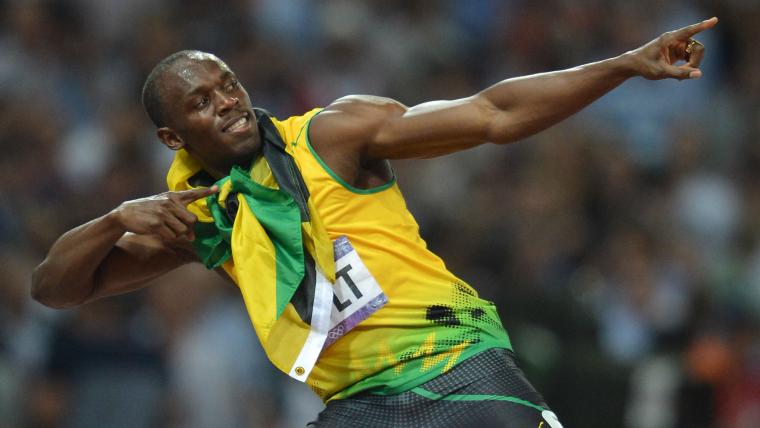The 2024 Summer Olympics in Paris are set to offer athletes a unique and high-quality culinary experience, diverging significantly from previous Games. In a surprising move, organizers have decided to ban chicken nuggets, a favorite food of legendary sprinter Usain Bolt, from the Olympic menu.
Usain Bolt’s Chicken Nugget Story
Jamaican sprinting icon Usain Bolt famously admitted to consuming over 1,000 chicken nuggets during the 2008 Beijing Olympics, where he won two gold medals. His penchant for the fast-food staple became part of his legendary status, symbolizing his relaxed yet exceptional approach to competition. Bolt’s diet during those games was widely discussed and became a quirky anecdote in his illustrious career.
However, athletes competing at the Paris Olympics will have to forego this popular snack. The organizers have chosen to prioritize nutritious, high-quality meals to better support athletes’ performance and well-being.
A Gourmet Culinary Experience
Replacing fast food, the Paris Olympics will feature meals prepared by top-tier Michelin-starred chefs. This initiative is designed to provide athletes with the best possible nutrition, ensuring they have the energy and nutrients needed for peak performance. The decision aligns with a broader trend in sports to enhance dietary standards and overall health management for athletes.
Athletes will enjoy a diverse array of gourmet dishes, with chefs ready to accommodate special dietary requests. This move towards personalized, high-quality nutrition reflects the organizers’ commitment to athlete health and optimal performance. The involvement of such esteemed culinary talent underscores the importance placed on nutrition in modern sports.
The Decision to Ban Chicken Nuggets
The ban on chicken nuggets is part of a broader strategy to promote healthier eating habits among athletes. While fast food items like nuggets are convenient and popular, they are often high in calories, fat, and sodium, which can negatively impact athletes’ health and performance. Nutrition experts argue that such foods do not provide the necessary nutrients for elite athletes and could hinder their performance.
By removing such options, the organizers hope to encourage athletes to choose meals that are more nutritionally balanced, aiding in their training and recovery. This decision is seen as a proactive step towards fostering a culture of health and wellness among athletes.
Reactions and Expectations
The decision has elicited mixed reactions from the athletic community and fans. Some view it as a positive step towards promoting health and wellness, while others lament the loss of more casual food options available in previous Games. Athletes who are accustomed to more relaxed dietary practices might find the transition challenging, but many understand the long-term benefits of such changes.
For the athletes, the involvement of Michelin-starred chefs is an exciting development. These chefs are renowned for their culinary skills and creativity, promising to deliver meals that are both delicious and tailored to the dietary needs of elite athletes. This partnership is expected to enhance the overall experience of the athletes, making their stay in Paris both memorable and beneficial.
The Importance of Nutrition in Athletic Performance
Nutrition plays a vital role in athletes’ performance and recovery. The right balance of nutrients can enhance endurance, strength, and overall health, which are crucial during the demanding competition period of the Olympics. Proper nutrition helps in muscle repair, energy replenishment, and maintaining mental focus, all of which are essential for peak athletic performance.
By focusing on providing high-quality, nutritious food, the Paris 2024 organizers aim to give athletes the best support possible to achieve their peak performance. This approach is in line with contemporary sports science, which emphasizes the importance of diet in achieving optimal athletic outcomes.
Conclusion
The decision to ban chicken nuggets and other fast food items from the Paris Olympics marks a significant shift in how athletes’ nutrition is managed during the Games. By partnering with Michelin-starred chefs, the organizers are ensuring that athletes have access to meals that are not only delicious but also optimized for their health and performance needs. This shift is a clear indication of the evolving priorities in sports management, where athlete well-being is given paramount importance.
As the world anticipates the Paris 2024 Summer Games, this innovative approach to athlete nutrition promises to be a standout feature, demonstrating a commitment to excellence both on and off the field. Athletes and fans can look forward to a culinary experience that matches the grandeur and excitement of the Olympic Games. This move not only sets a new standard for future Games but also highlights the growing understanding of the critical role that nutrition plays in athletic success.
ALSO READ:Real Madrid’s Financial Triumph: Surpassing €1 Billion in Operating Income for 2023/24


